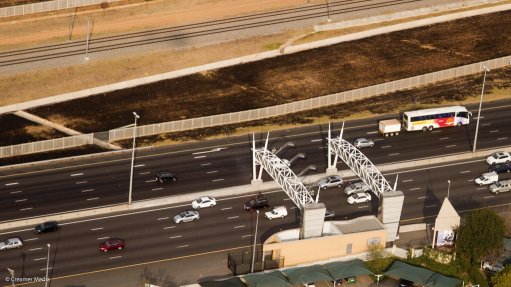
Photo by: Duane Daws
In its interrogation of the impact of the e-toll system on Gauteng, the Advisory Panel on the Socioeconomic Impact of E-tolls says it will not only focus on the economic arguments made in respect of the payment recovery mechanism, but will also focus on the qualitative impact of the system on the province’s commuters.
Addressing South African National Roads Agency Limited (Sanral) CEO Nazir Alli following a morning of submissions by the agency, panel chairperson Muxe Nkondo said on Wednesday that a determination of the qualitative impact of the tolling system was particularly difficult, as this would require an analysis of the social, economic, political and environmental implications.
He said Sanral had been thorough in presenting the financial and economic argument behind the Gauteng Freeway Improvement Project (GFIP) and the selection of the user-pays principle, but had not presented an “exhaustive” analysis of the social impact of e-tolls.
“We [as a panel] have to determine [the] qualitative impact, which is very difficult. Sanral has been strong on [communicating] the economic impact of e-tolls, but we also have to look carefully at the social impact and that’s where the problem comes in, in terms of methodology.
“It’s important that we [do not] just go out there with a version of the economic importance. This must be complemented by a social analysis for us to deal with the complexity of the situation,” he commented.
Nkondo added that the panel would also consider the political dimensions of the implementation of the system.
He further put it to Alli that Sanral and the Department of Transport could have acted differently or communicated more effectively to avoid the widespread public unease over e-tolls.
“Perhaps we should ask what we could have done to avoid the current outburst. You’ve been good at going through the policy and legislation and, in terms of the broad thrust [of Sanral’s representations to the panel], it is very impressive.
“Yet we have a collective outburst that does not work well with your economic analyses and your narrative, and we’re trying to account for that,” he noted.
Responding to Nkondo’s comments, Alli maintained that Sanral had endeavoured to provide a “holistic” overview of e-tolls rather than focusing exclusively on its economic impact.
“We have looked at the externalities of the project, [but] agree that there is a shortage of literature to investigate the social impact of any project we do, [it is] not just this one,” he said.
Gauteng Premier David Makhura established the review panel earlier this year to investigate the socioeconomic impact of the tolling system on the province and it was expected to deliver a final report and list of recommendations to the Gauteng provincial government by November 30.